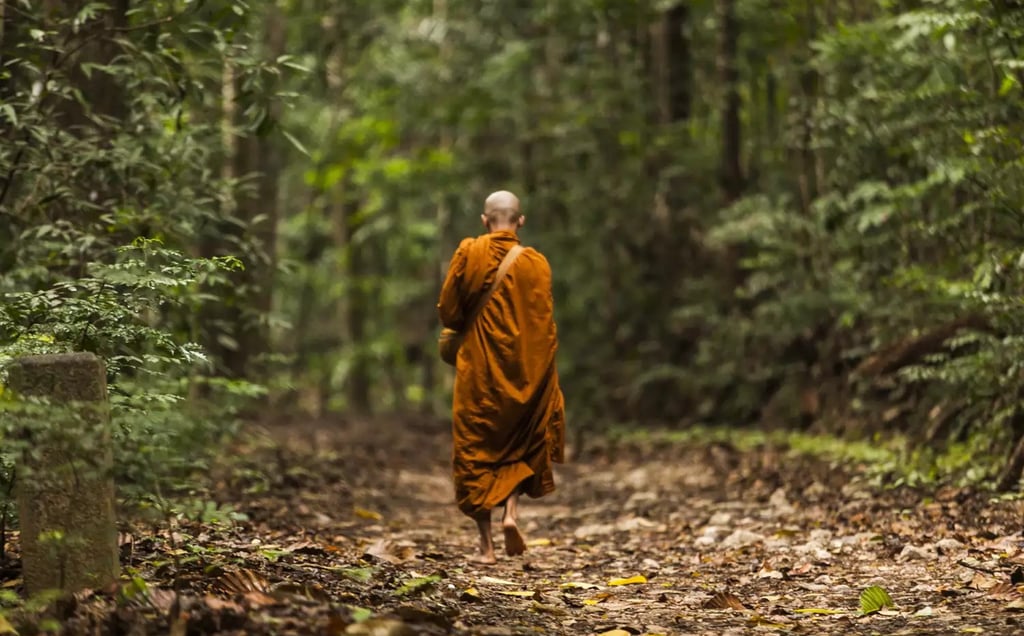

THAI FOREST TRADITION
The emergence of the Thai Forest Tradition was associated largely with Ajaan Mun Bhuridatto in the early decades of the twentieth century. Ajaan Mun was born in the 1870s in Ubon Ratchathani province, near the borders of Laos and Cambodia. He trained under the renowned forest monk Ajaan Sao, vigorously practicing meditation, and then turned to a life of ascetic wandering in the vast wilderness that blanketed northeast Thailand before he became a great teacher and exemplar of high standards of conduct. Almost all of the accomplished and revered meditation teachers of twentieth-century Thailand were his direct disciples.
The Thai Forest Tradition faithfully holds to the original monastic code laid down by the Buddha. It emphasizes meditative practice and striving for the realization of enlightenment as the focus of monastic life. A forest monk upholds the ideal of a homeless wanderer who renounces the world and goes forth from the household, living a life of austerity and frugality with few possessions.
The Thai Forest Tradition way of life was exemplified by Ajaan Mun himself as well as many of his direct disciples. They were intent on renunciation and solitude, hiking through forests and mountains in search of secluded places for practicing meditation. Their lives were lived entirely out of doors at the mercy of the elements. Their daily lives were full of forests and mountains, rivers and streams, caves, overhanging cliffs, and wild creatures large and small. They moved from place to place in remote wildness where the population was sparse and village communities were far apart. Since their livelihood depended on the alms food they collected from those small settlements, they never knew where their next meal would come from or whether they would get any food at all.
Dwelling in the forest, with its difficult situations and dangerous surroundings, provided an excellent arena for fostering patient endurance and overcoming fear. The forest, with its simplicity, quietude, and natural beauty, provided a pleasant environment suitable for developing concentration and cultivating wisdom. The Buddha himself was born and enlightened in the forest; he taught in the forest and passed away in the forest. The Buddha frequently dwelt in forests during his spiritual quest and after enlightenment; his journey to liberation epitomized the ideal of the Forest Tradition way of life. The Buddha's exemplary life is a constant source of encouragement for his disciples to seek out the seclusion of forest dwellings as the ideal way to strive along the path to Nibbana, the supreme happiness that he had promised.
Sarasota Forest Monastery, 520 Lewis Street, Englewood, FL 34223
